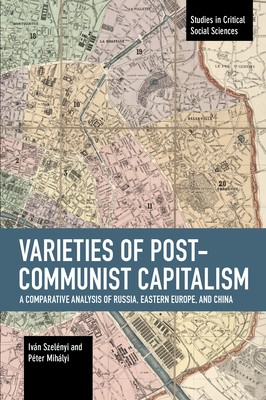
- We will send in 10–14 business days.
- Author: Iván Szelényi
- Publisher: Haymarket Books
- ISBN-10: 1642593664
- ISBN-13: 9781642593662
- Format: 15.2 x 22.9 x 1.4 cm, softcover
- Language: English
- SAVE -10% with code: EXTRA
Reviews
Description
This book intends to be a contribution to the "varieties of capitalism" paradigm. The theoretical background is Weber's theory of legitimacy. Was communism ever "legitimate"? What kind of legitimacy claims were made in the transition from communism to capitalism? Central Europe was closer to the Western "liberal" model. Russia built capitalism in a patrimonial way. China followed its own unique way; some called it "socialism with Chinese characteristics". Putin experiments with an innovation for post-communist capitalism. He confronts the "oligarchs" and reallocates property from those who challenge his political authority to old and new loyal ones. This book asks to what extent such forms can serve as generic models for post-communist capitalism?
EXTRA 10 % discount with code: EXTRA
The promotion ends in 20d.17:55:36
The discount code is valid when purchasing from 10 €. Discounts do not stack.
- Author: Iván Szelényi
- Publisher: Haymarket Books
- ISBN-10: 1642593664
- ISBN-13: 9781642593662
- Format: 15.2 x 22.9 x 1.4 cm, softcover
- Language: English English
This book intends to be a contribution to the "varieties of capitalism" paradigm. The theoretical background is Weber's theory of legitimacy. Was communism ever "legitimate"? What kind of legitimacy claims were made in the transition from communism to capitalism? Central Europe was closer to the Western "liberal" model. Russia built capitalism in a patrimonial way. China followed its own unique way; some called it "socialism with Chinese characteristics". Putin experiments with an innovation for post-communist capitalism. He confronts the "oligarchs" and reallocates property from those who challenge his political authority to old and new loyal ones. This book asks to what extent such forms can serve as generic models for post-communist capitalism?


Reviews